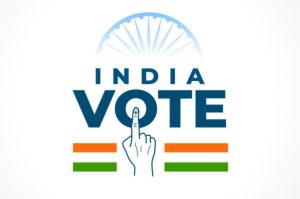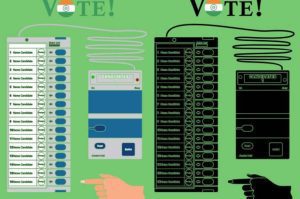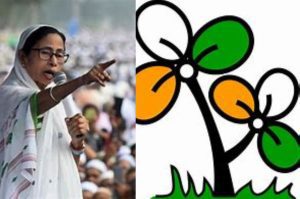Aadhaar Voter ID Linking Controversy: The Trinamool Congress (TMC) Raises Strong Objections to Aadhaar-Voter ID Linking Over Data Security and Legal Concerns
In a significant political development that has stirred nationwide debate, the Trinamool Congress (TMC), one of India’s most influential regional parties, has come out strongly against the Election Commission of India’s (ECI) ongoing initiative to link Aadhaar numbers with Voter ID cards, officially known as Electoral Photo Identity Cards (EPICs). The party’s opposition is rooted in deep-seated concerns related to individual data security, constitutional legality, and potential voter disenfranchisement, especially among vulnerable and marginalized groups.
The TMC has expressed apprehension that the initiative, though positioned by the ECI as a measure to eliminate duplicate entries and enhance the integrity of the electoral roll, lacks the transparency, legal safeguards, and public awareness necessary for such a sensitive and far-reaching undertaking. According to the party, the mandatory or coercive collection of Aadhaar numbers under the guise of a “voluntary” initiative could infringe on the fundamental rights of Indian citizens, particularly the right to privacy as upheld by the Supreme Court of India in its landmark Puttaswamy judgment in 2017.
Furthermore, the TMC has raised alarms about the ambiguity in official communications surrounding the Aadhaar-EPIC linking process. While the Election Commission has claimed that the process is entirely voluntary, field reports suggest that many voters have been misinformed or coerced into providing their Aadhaar details under the mistaken belief that the linkage is compulsory for voting eligibility. The party argues that this lack of clarity, combined with the absence of a robust data protection law, opens the door to potential misuse of citizens’ biometric and personal data for non-electoral purposes.
In its official communication with the Election Commission, the TMC emphasized that the linking process should be immediately suspended until a comprehensive public consultation is held and all legal, ethical, and technical concerns are adequately addressed. The party also highlighted that any move to link Aadhaar with Voter ID should be backed by legislation passed by Parliament, ensuring democratic scrutiny and accountability. Without such a framework, the initiative, according to TMC, not only risks being unconstitutional but could also pave the way for large-scale disenfranchisement of eligible voters, particularly those from rural and economically disadvantaged communities who may lack access to Aadhaar or face bureaucratic hurdles in its procurement.
The issue, as highlighted by the TMC, is not just administrative but also touches on the foundational principles of democratic participation, electoral fairness, and citizens’ rights. The party has demanded that the ECI come clean on the legal basis of the initiative, ensure that no voter is denied the right to vote for failing to link their Aadhaar, and institute strong data protection protocols to prevent any unauthorized access or leakage of sensitive personal information.
This development marks a critical juncture in India’s ongoing debate over the use of Aadhaar beyond welfare delivery, raising essential questions about the balance between technological solutions and the safeguarding of civil liberties in a digital democracy.
TMC’s Concerns and Actions: A Detailed Memorandum to the Election Commission
On April 4, 2025, the Trinamool Congress (TMC) escalated its opposition to the Election Commission of India’s (ECI) Aadhaar-Voter ID linking initiative by formally submitting a detailed memorandum. A high-profile delegation comprising senior Members of Parliament—Derek O’Brien, Kalyan Banerjee, Dr. Kakoli Ghosh Dastidar, and Sagarika Ghose—met with top ECI officials in New Delhi to voice the party’s concerns. The move signals the TMC’s strong stance on protecting voter rights, privacy, and the sanctity of the electoral process.
The memorandum submitted by the TMC delegation was not a mere statement of disagreement—it was a comprehensive document outlining legal, constitutional, ethical, and procedural objections to the Aadhaar-EPIC linkage. According to the party, the issue is not only one of individual privacy but also one that threatens the democratic fabric of the country by potentially disenfranchising large sections of voters, especially those from underprivileged and marginalized backgrounds.


- Voluntary Nature of the Linking Process
One of the primary concerns raised in the memorandum was the ambiguity surrounding the voluntary nature of the Aadhaar-Voter ID linking process. The TMC leaders questioned why the Election Commission has failed to make an explicit and widespread public declaration clarifying that linking Aadhaar to EPIC is entirely voluntary and not mandatory under any circumstances.
The party argued that, in the absence of such clear communication, many citizens—especially in rural areas—are being misled by local election officials or misunderstood government circulars. Anecdotal reports suggest that some voters believe their voting rights could be revoked or suspended if they fail to complete the linkage, which is categorically untrue under current laws.
The TMC emphasized that any voluntary system must be backed by transparent, consistent, and multilingual public communication, ensuring that citizens are fully informed and empowered to make their own decisions without fear or coercion. “This lack of transparency erodes public trust in the electoral process,” the party stated in the memorandum, demanding that the ECI immediately issue a public advisory reaffirming the voluntary nature of the initiative.
- Data Security and Privacy
The TMC’s memorandum went on to highlight serious concerns about the safety and privacy of citizens’ data, particularly in light of India’s yet-to-be-enacted comprehensive data protection legislation. The party questioned the safeguards currently in place to prevent unauthorized access, data breaches, or misuse of personal and biometric data collected through the Aadhaar system.
Given that Aadhaar contains sensitive information including fingerprints and iris scans, linking it to voter databases could make the electoral roll a prime target for cyber-attacks or political exploitation, warned the party. TMC leaders emphasized that without strong data governance protocols, the Aadhaar-EPIC linkage could result in irreversible damage to personal privacy and democratic processes.
Moreover, the party drew attention to previous instances of Aadhaar data leaks and misuse, stating that such lapses underscore the necessity for end-to-end encryption, limited data retention, and independent oversight mechanisms. The party also demanded a third-party audit of the ECI’s data handling procedures before continuing with any linkage drive.
- Legal and Constitutional Concerns
Perhaps the most crucial element of the TMC’s objection lies in its legal and constitutional arguments. The party referenced the Supreme Court’s landmark judgment in the Justice K.S. Puttaswamy (Retd.) v. Union of India case (2017), which recognized the right to privacy as a fundamental right under Article 21 of the Constitution. The judgment further established that any infringement on this right must pass the tests of necessity, proportionality, and legality.
According to the TMC, the ECI has not provided sufficient justification to demonstrate how Aadhaar-Voter ID linkage meets these tests. “The Commission has failed to establish how this measure is necessary to prevent voter fraud or duplication, especially when other verification mechanisms already exist,” said the delegation during the meeting.
The party also pointed out that the Election Laws (Amendment) Act, 2021, which introduced the provision for Aadhaar linkage, allows for it on a voluntary basis. However, the implementation on the ground, as per TMC’s findings, reflects a de facto mandatory approach, which could be construed as an unconstitutional overreach of executive power.
The TMC warned that if the ECI fails to halt the process and review it under appropriate judicial and parliamentary scrutiny, the party may consider approaching the Supreme Court or relevant constitutional authorities to seek redress.
- Impact on Marginalized and Disenfranchised Communities
In its memorandum, the TMC also drew attention to the disproportionate impact this initiative may have on marginalized populations, such as migrant workers, tribal communities, and rural women, many of whom still lack Aadhaar cards or face issues with incorrect data. In earlier Aadhaar-based projects such as the Public Distribution System (PDS) and Direct Benefit Transfers (DBT), large numbers of eligible beneficiaries were excluded due to biometric mismatches or errors in data entry.
The party fears that similar exclusionary consequences could arise in the electoral system if Aadhaar becomes a de facto requirement for voting, thus threatening universal adult suffrage, a cornerstone of Indian democracy.
TMC MPs argued that disenfranchisement through technical or administrative errors cannot be justified under any democratic system. They insisted on detailed impact assessments and pilot studies before any large-scale implementation, especially in states with vulnerable populations.
- Call for Wider Political and Civil Society Engagement
To address this issue in a transparent and democratic manner, the TMC called on the ECI to initiate a multi-stakeholder consultation process, involving not just political parties but also civil society organizations, legal experts, technologists, and human rights activists. The party asserted that the current approach lacks democratic legitimacy because it has not been debated or deliberated in public forums or Parliament.
They urged the Commission to take a more inclusive route by publishing a white paper, inviting feedback from citizens, and presenting a clear cost-benefit analysis of the Aadhaar-EPIC linkage program. The party reiterated that such an approach would be more in line with the values of transparency and accountability that underpin democratic governance.
Aadhaar Voter ID Linking Controversy: Broader Opposition and Expert Opinions
The TMC is not alone in its apprehensions. Various experts and organizations have expressed skepticism about the benefits and implications of linking voter IDs with Aadhaar:
- Data Privacy Advocates: The Internet Freedom Foundation (IFF) has criticized the move, stating that it could lead to mass disenfranchisement and violate citizens’ privacy rights.
- Legal Experts: Concerns have been raised about the potential for data breaches and the lack of a robust legal framework to protect the linked information.
Election Commission’s Stance: Emphasis on Electoral Integrity Amidst Rising Concerns
Despite mounting criticism and resistance from various political quarters, especially the Trinamool Congress (TMC), the Election Commission of India (ECI) has remained steadfast in its approach toward linking Aadhaar numbers with Voter ID cards (EPICs). The ECI has publicly maintained that the initiative is rooted in a genuine attempt to clean up the electoral rolls, eliminate duplicate or fraudulent entries, and improve the overall transparency and efficiency of the election process.


As part of its continued push for this ambitious plan, Chief Election Commissioner (CEC) Gyanesh Kumar recently scheduled a high-level meeting with several key stakeholders in the Aadhaar infrastructure and data governance framework. Among the attendees were the Home Secretary, senior representatives of the Unique Identification Authority of India (UIDAI), and top bureaucrats from the Ministry of Law and Justice. The meeting aimed to deliberate on the legal, technical, and logistical intricacies of implementing Aadhaar-EPIC linkage at a national scale, especially in light of the challenges being raised by multiple stakeholders.
Aadhaar Voter ID Linking Controversy: Objectives of the ECI’s Aadhaar-EPIC Linkage


The ECI’s official stance underscores several objectives that the commission believes are both urgent and essential for the health of Indian democracy. According to the commission:
- Eliminating Duplicate Voter Entries: By linking Aadhaar, which is a unique biometric-based identification number, the ECI aims to detect and remove multiple entries made by the same individual under different names or in multiple constituencies—an issue that has plagued the Indian electoral system for decades.
- Curbing Electoral Malpractices: The ECI believes that fraudulent voting, bogus entries, and impersonation during elections can be drastically minimized by ensuring that each voter is linked to a verified Aadhaar ID. This, the commission claims, will strengthen electoral integrity and prevent manipulation of results, particularly in closely contested seats.
- Facilitating Smooth Voter Migration: The commission argues that Aadhaar linkage can help ease the process of voter registration and address updates, especially for migrant workers and urban populations who frequently change their place of residence. Through centralized Aadhaar data, voters could seamlessly update their location without bureaucratic hurdles.
- Enhanced Voter Services through Digitization: By integrating voter databases with Aadhaar, the ECI aims to modernize its voter services, allowing citizens to access and update electoral information online, receive timely SMS/email notifications, and benefit from a more user-centric electoral process.
Aadhaar Voter ID Linking Controversy: Pushback from Political and Civil Society Groups
While the ECI maintains these goals are in the interest of a fairer and more efficient democratic process, political parties like the TMC and several civil liberties organizations have called the initiative a potential overreach that may violate fundamental rights. Critics argue that despite the claim of voluntariness, the implementation on the ground appears coercive. Several voters have reported being told by local officials that failure to link Aadhaar with their EPICs could lead to disenfranchisement, an outcome the ECI has not categorically denied in strong enough terms.
Moreover, civil rights activists have pointed out that Aadhaar data has known issues with accuracy, especially for older citizens, daily wage laborers, and residents of rural or tribal areas. Biometric failures due to manual labor-induced wear and tear or health-related challenges are common, leading to fears that Aadhaar-based authentication could cause inadvertent exclusion from the electoral process.
Aadhaar Voter ID Linking Controversy: Legal Justifications and the Role of UIDAI
In response to legal concerns, the ECI has defended the Aadhaar-EPIC linkage by citing provisions in the Election Laws (Amendment) Act, 2021, which introduced the possibility of linking the two databases on a voluntary basis. The Commission has reiterated in official circulars that no voter will be removed solely due to the lack of Aadhaar linkage. However, implementation irregularities and ambiguous communication have fueled suspicion and skepticism.
To bolster its legal footing, the ECI is working in close coordination with the UIDAI, the body responsible for overseeing Aadhaar infrastructure. UIDAI has expressed confidence in the security and encryption standards of its system, asserting that no personal data can be accessed without authorization. In the recent meeting with the ECI, UIDAI officials highlighted their compliance with the Information Technology Act, 2000, and the Aadhaar (Targeted Delivery of Financial and Other Subsidies, Benefits and Services) Act, 2016.
Yet, critics argue that India still lacks a comprehensive data protection law, and the Data Protection Bill—still under parliamentary consideration—must first be passed before any such mass linkage involving sensitive data can be considered safe or ethical.
Electoral Roll Purification: A Technical Challenge
One of the ECI’s key challenges lies in managing the scale and diversity of India’s electoral database. With over 950 million registered voters, of which a substantial number are rural, linguistically diverse, and technologically disconnected, the process of Aadhaar seeding into voter records becomes enormously complex.
According to internal estimates, the process could take several years to fully implement across all states and union territories, with regional disparities in Aadhaar penetration adding further layers of complexity. For instance, states like Kerala and Telangana report Aadhaar coverage of over 90%, while northeastern and tribal-dominated states still lag behind.
Technical glitches, such as name mismatches, spelling errors, or incorrect demographic data across Aadhaar and EPIC records, often result in failed linkages. These issues can delay the process significantly and disenfranchise genuine voters unless accompanied by targeted support systems and error resolution mechanisms.
The ECI’s Communications Strategy: A Work in Progress
Another area where the ECI has received criticism is its communications strategy. While some public notices have mentioned the voluntary nature of the linkage, many voter awareness campaigns have not highlighted this point explicitly, leading to confusion among the electorate. In rural and semi-urban areas, where access to information is often mediated by local officials or third-party agents, misinformation has spread rapidly.
To address this, the ECI has now initiated steps to revamp its outreach programs. Officials have hinted at upcoming multilingual, multimedia campaigns that will emphasize the optional nature of Aadhaar linkage and guide voters on how to exercise their choice. These campaigns are expected to be rolled out before the next round of state elections, where the Aadhaar issue could become a prominent electoral topic.
Ongoing Consultations and Future Roadmap
In a recent statement to the press, Chief Election Commissioner Gyanesh Kumar acknowledged the growing public debate around the Aadhaar linkage and assured that the Commission would take into account all stakeholder feedback before scaling up the process nationally. He stressed that “electoral integrity must be balanced with voter trust and democratic principles.”
To this end, the ECI is currently reviewing the possibility of setting up an independent advisory committee, including experts in law, data protection, electoral policy, and civil society, to monitor the rollout of Aadhaar-EPIC linkage and suggest corrective measures where needed.
The commission has also proposed a multi-phase pilot testing approach, where specific districts will implement Aadhaar-Voter ID linking under close supervision and evaluation before national rollout. The success and feedback from these pilot programs will shape the ECI’s final policy framework.
Aadhaar Voter ID Linking Controversy: Historical Context and Legal Challenges
The initiative to link Aadhaar with voter IDs is not new. In 2015, the ECI launched the National Electoral Roll Purification and Authentication Programme (NERPAP) with similar objectives. However, the program was halted following a Supreme Court order emphasizing the voluntary nature of Aadhaar and raising privacy concerns.
Legal experts argue that without clear legislative backing and stringent data protection laws, such initiatives could face significant constitutional challenges. The Supreme Court’s judgment in the Puttaswamy case underscored the necessity of safeguarding individual privacy, setting a precedent that could impact the Aadhaar-EPIC linkage.
Aadhaar Voter ID Linking Controversy: Political Implications and Future Outlook
The TMC’s opposition reflects broader political apprehensions about the potential misuse of linked data for voter profiling and surveillance. Other political parties have also expressed reservations, indicating that the issue could become a significant point of contention in the lead-up to future elections.
As the debate continues, it remains to be seen how the ECI will address these multifaceted concerns. Ensuring transparency, safeguarding privacy, and adhering to legal norms will be crucial in determining the viability and acceptance of the Aadhaar-EPIC linkage initiative.
While the objective of creating a more accurate and fraud-resistant electoral roll is commendable, it is imperative that such measures do not compromise individual rights or democratic principles. The concerns raised by the TMC and other stakeholders highlight the need for a cautious and consultative approach to policy- making in this sensitive domain.
DO FOLLOW:
Also read: Home | Channel 6 Network – Latest News, Breaking Updates: Politics, Business, Tech & More


